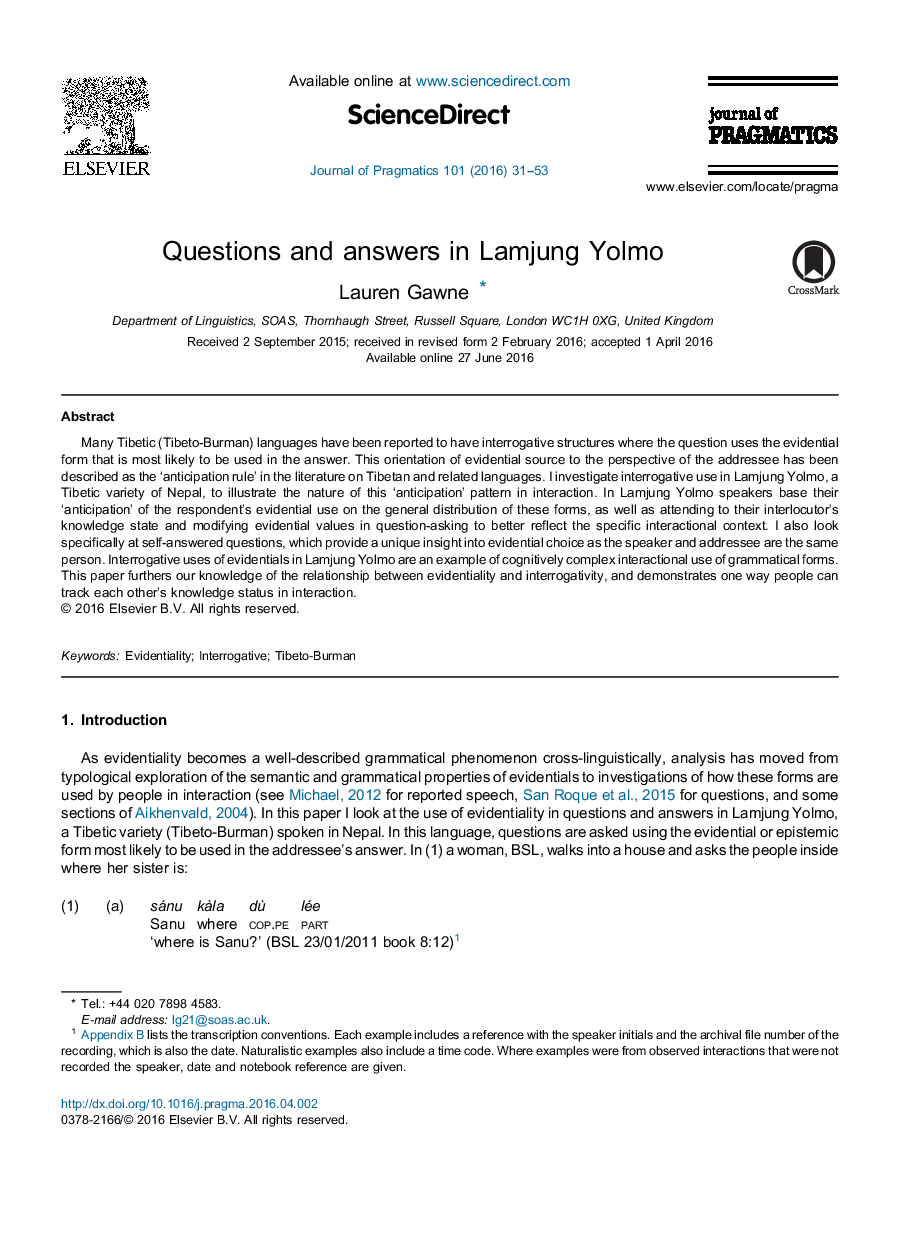| Article ID | Journal | Published Year | Pages | File Type |
|---|---|---|---|---|
| 7297820 | Journal of Pragmatics | 2016 | 23 Pages |
Abstract
Many Tibetic (Tibeto-Burman) languages have been reported to have interrogative structures where the question uses the evidential form that is most likely to be used in the answer. This orientation of evidential source to the perspective of the addressee has been described as the 'anticipation rule' in the literature on Tibetan and related languages. I investigate interrogative use in Lamjung Yolmo, a Tibetic variety of Nepal, to illustrate the nature of this 'anticipation' pattern in interaction. In Lamjung Yolmo speakers base their 'anticipation' of the respondent's evidential use on the general distribution of these forms, as well as attending to their interlocutor's knowledge state and modifying evidential values in question-asking to better reflect the specific interactional context. I also look specifically at self-answered questions, which provide a unique insight into evidential choice as the speaker and addressee are the same person. Interrogative uses of evidentials in Lamjung Yolmo are an example of cognitively complex interactional use of grammatical forms. This paper furthers our knowledge of the relationship between evidentiality and interrogativity, and demonstrates one way people can track each other's knowledge status in interaction.
Related Topics
Social Sciences and Humanities
Arts and Humanities
Language and Linguistics
Authors
Lauren Gawne,
